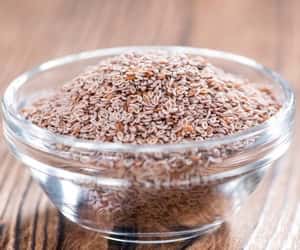
Have you ever tried to get off a PPI like esomeprazole (Nexium) or lansoprazole (Prevacid)? If so, you might have experienced rebound heartburn. People who encounter this problem–and many do–may find it difficult to stop taking their acid-suppressing medication.
Does Heartburn Get Worse When You Try to Get Off a PPI?
Q. I’ve been on Prilosec daily for over 20 years. If I’m late taking this pill, I get terrible heartburn.
Although my memory isn’t what it used to be, my doctor says I am doing well. As far as I can tell, I don’t have any side effects and, in the meantime, I do not have heartburn!
A. The label on OTC Prilosec (omeprazole) states: “Do not use for more than 14 days unless directed by your doctor. You may repeat a 14-day course every 4 months.”
Long-term use may result in weaker bones, cardiovascular problems, infections, cognitive decline and kidney damage, among other complications. That is why we think it makes sense not to take it for longer than necessary.
Stopping is easier said than done, though. Painful rebound heartburn symptoms often occur shortly after stopping this acid-suppressing drug. As you’ve discovered, that can make it hard to discontinue the medicine. You will find tips on how to get off a PPI as well as natural ways to control heartburn in our eGuide to Overcoming Digestive Disorders.
A Different Way to Get Off a PPI:
Q. Lots of folks have difficulties trying to stop taking PPIs for heartburn. It seems their heartburn comes back even stronger.
I succeeded by drinking psyllium at bedtime. It seems to form a jelly ball in your stomach that keeps the acid from getting up into your esophagus at night.
It doesn’t taste very good, so I mix it with an envelope of Emergen-C. I whip them together with water and chug the combo down fast. Otherwise I need a spoon! I no longer take PPIs and I don’t wake up in the middle of the night with my throat on fire!
A. Most people think of psyllium as a laxative. This soluble fiber is made from the seeds of Plantago ovata and is sold under brand names like Metamucil. When the fiber dissolves in water, it forms a gel-like blob.
This natural product is useful not only for relieving constipation but also against diarrhea and irritable bowel syndrome. Moreover, regular use can help reduce cholesterol levels and blood pressure.
We were fascinated with your suggestion that psyllium can help control heartburn. One small study showed that 5 grams of psyllium three times a day significantly reduced heartburn (World Journal of Gastroenterology, June 7, 2018). Be sure to take it with adequate water or it could cause blockage. We hope your approach will help others who want to get off a PPI.
Can You Get Off a PPI With a Different Eating Plan?
Q. I’ve accidentally found an amazing way to get off of acid-suppressing drugs without having rebound reflux. I’ve been taking heartburn medicines for decades, ever since cimetidine first came out. Later, I started taking omeprazole or esomeprazole. Whenever I tried stopping these drugs, I got horrible heartburn.
This time, I discovered by accident how to get off them. I’ve been trying to lose weight, so I’ve gone low carb. I eat just one meal a day, because I’ve heard that intermittent fasting is helpful.
A week ago, I decided to try once again not to take daily medication to control my incessant heartburn. I stocked up on Tums and other antacids because I knew I would be in trouble once I stopped. Then I took my last Nexium and waited for the flames of hell to appear in my chest.
About 15 hours passed and I started to feel a little heartburn coming. I took a Tums and waited for the next round. I’m still waiting. A week later, I’ve not had any heartburn. I should be in agony, but I’m completely heartburn-free. I feel like singing!
Hopefully, this information will help others who were addicted to PPIs as I was. The solution is: Eat one meal a day and fast for 23 hours before you eat again. Stick to low carbs and water. Good luck!
Low-Carb Diet Can Help:
A. Research supports your accidental discovery. A very low-carbohydrate diet has been shown to help control symptoms of acid reflux (Alimentary Pharmacology and Therapeutics, Nov. 2016; Digestive Diseases and Sciences, Aug. 2006).
We were not able to find research demonstrating that intermittent fasting is helpful for heartburn. However, people who follow a schedule of eating within a twelve-hour daily window or less seem to sleep better, gain less weight and have healthier hearts (Journal of Physiology, June 15, 2017). We offer several other non-drug approaches to get off a PPI in our Guide to Digestive Disorders.
You may also wish to listen to our interview with Dr. Tieraona Low Dog in Show 1292: Natural Ways to Treat Heartburn. Show 1224: What Is the Best Way to Manage Your Heartburn? with Dr. Robynne Chutkan is also helpful.
Citations
- Morozov S et al, "Fiber-enriched diet helps to control symptoms and improves esophageal motility in patients with non-erosive gastroesophageal reflux disease." World Journal of Gastroenterology, June 7, 2018. DOI: 10.3748/wjg.v24.i21.2291
- Pointer SD et al, "Dietary carbohydrate intake, insulin resistance and gastro-oesophageal reflux disease: a pilot study in European- and African-American obese women." Alimentary Pharmacology and Therapeutics, Nov. 2016. DOI: 10.1111/apt.13784
- Austin GL et al, "A very low-carbohydrate diet improves gastroesophageal reflux and its symptoms." Digestive Diseases and Sciences, Aug. 2006. DOI: 10.1007/s10620-005-9027-7
- Melkani GC & Panda S, " Time-restricted feeding for prevention and treatment of cardiometabolic disorders." Journal of Physiology, June 15, 2017. DOI: 10.1113/JP273094

